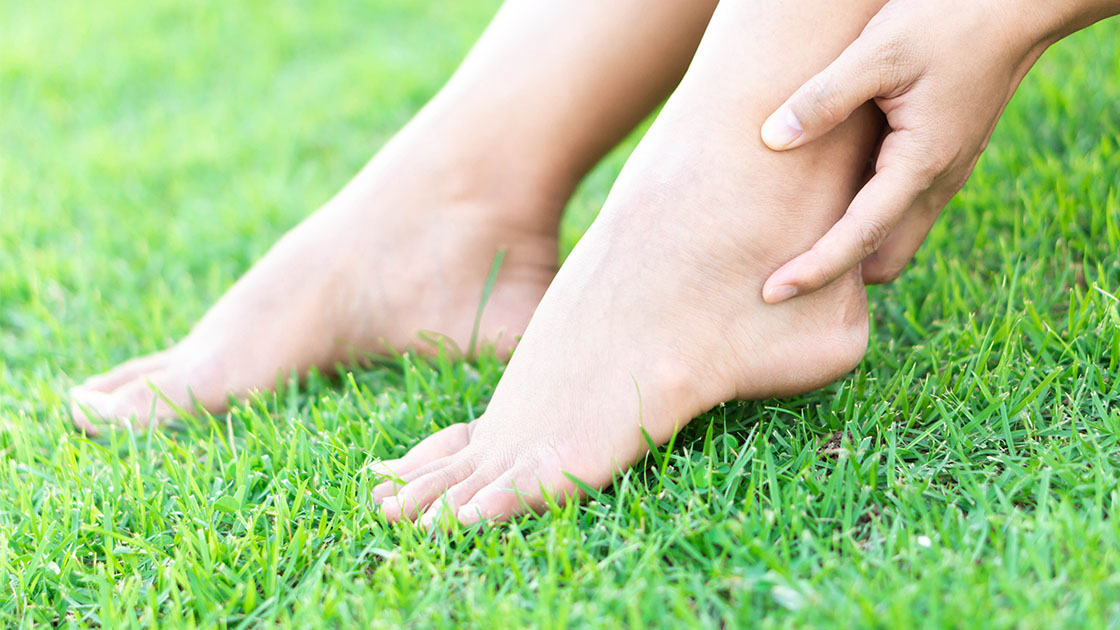Page Contents
Achilles tendonitis is a common and painful condition that affects the Achilles tendon, the thick band of tissue connecting the calf muscles to the heel bone. Various factors, including overuse, improper footwear, or sudden increases in physical activity, can cause it. For individuals suffering from Achilles tendonitis, finding effective treatment options is crucial for relieving pain and promoting healing. One emerging treatment that has gained attention is laser therapy. In this blog, we will explore the potential benefits of laser therapy for Achilles tendonitis.
Understanding Achilles Tendonitis
Before delving into laser therapy, it’s essential to have a basic understanding of Achilles tendonitis. This condition typically manifests as pain and inflammation in the Achilles tendon, resulting in discomfort, swelling, and impaired mobility. It is often experienced by athletes, runners, and individuals who engage in repetitive activities that stress the Achilles tendon.
The Achilles tendon plays a vital role in everyday movements, such as walking, running, and jumping. When it becomes injured or inflamed, these activities can become painful or even impossible to perform. Achilles tendonitis can significantly impact one’s quality of life, making it essential to explore effective treatment options.
Laser Therapy: A Non-Invasive Approach
Laser therapy, also known as low-level laser therapy (LLLT) or cold laser therapy, is a non-invasive and painless treatment option that has shown promise in addressing Achilles tendonitis. It utilizes low-intensity lasers or light-emitting diodes (LEDs) to stimulate cellular activity and promote healing within the affected area.
Here’s how laser therapy works for Achilles tendonitis:
1. Stimulation of Cellular Repair: The concentrated light energy from the laser penetrates the skin and reaches the inflamed Achilles tendon. It interacts with the damaged cells, promoting increased blood flow, reducing inflammation, and accelerating the body’s natural healing processes.
2. Pain Reduction: Laser therapy has been found to effectively reduce pain associated with Achilles tendonitis. It can provide relief by decreasing the production of pain-inducing molecules and stimulating the release of endorphins, the body’s natural painkillers.
3. Improved Collagen Production: Laser therapy can stimulate the production of collagen, a crucial component of the Achilles tendon’s structure. This helps in the repair and strengthening of the tendon.
4. Faster Recovery: One of the key benefits of laser therapy is its ability to speed up the healing process. This means that individuals undergoing laser therapy for Achilles tendonitis may experience quicker relief and a faster return to their regular activities.
The Advantages of Laser Therapy
Laser therapy offers several advantages for Achilles tendonitis sufferers:
1. Non-Invasive: Laser therapy is a non-surgical and non-invasive treatment, which means it doesn’t require incisions or anesthesia. Patients can undergo the therapy without the risks associated with surgery.
2. Pain-Free: Unlike some other treatments, laser therapy is generally painless. Patients may experience a mild warming sensation, but they do not experience discomfort during the procedure.
3. Minimal Side Effects: Laser therapy is associated with minimal side effects. Patients may experience temporary redness or warmth at the treatment site, but these effects typically subside quickly.
4. Customized Treatment: Laser therapy can be tailored to the specific needs of each patient. Healthcare providers can adjust the intensity and duration of the treatment to effectively target the Achilles tendon.
Conclusion: A Promising Option
While laser therapy for Achilles tendonitis is still a relatively new field of study, the available research and clinical experience suggest that it can be a beneficial and non-invasive option for pain relief and healing. However, as with any medical treatment, it’s essential to consult with a healthcare professional to determine the most appropriate course of action for your specific condition. If you are struggling with Achilles tendonitis and are seeking alternatives to traditional treatments, consider discussing the potential benefits of laser therapy with your healthcare provider. It could be the solution that helps you get back on your feet and back to the activities you love sooner than you thought possible.
